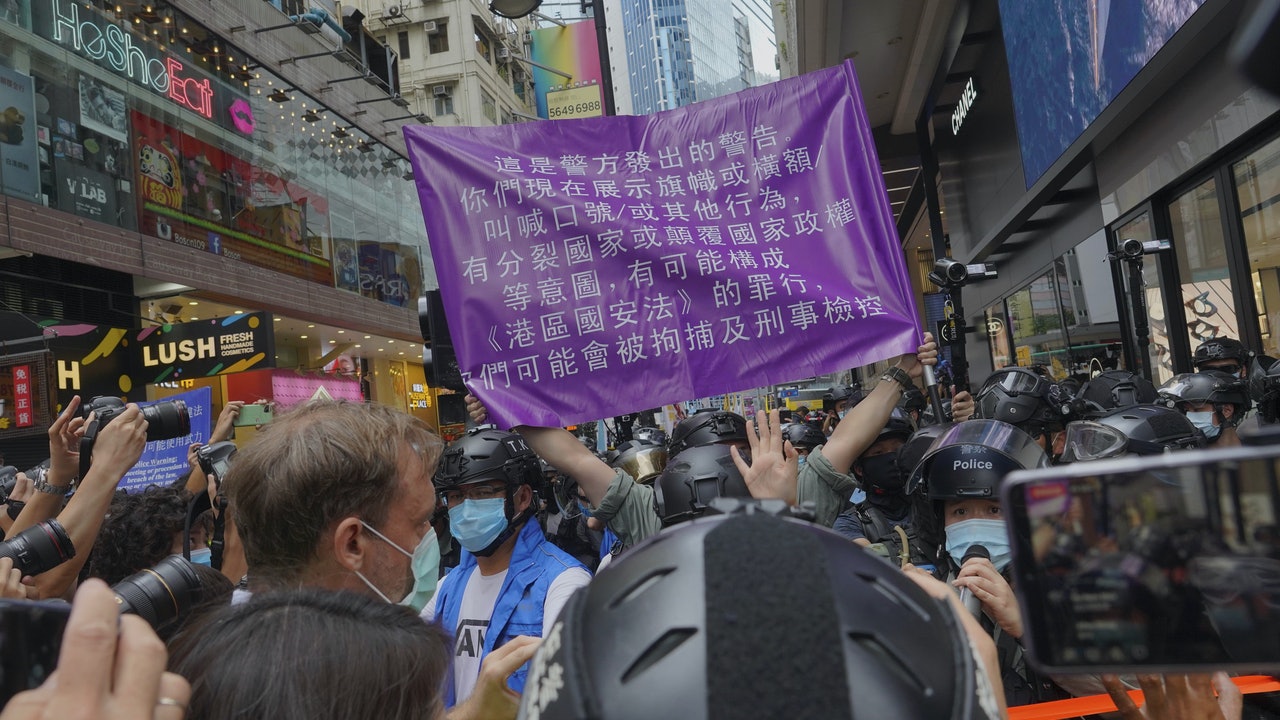Instant International
Author: Ling Junxian
2020-07-07 20:04
Last update date: 2020-07-07 20:04Facebook, WhatsApp, Telegram, Zoom and other social platforms and instant messaging software announced on July 6 that they temporarily refused the request of the Hong Kong government and police to obtain user information.
The actions may cause these technology giants to face a dilemma in terms of freedom of expression and operation: refusal to implement the requirements of the Hong Kong government or face legal proceedings, or even lose the Chinese market; if they do so, they will lose Hong Kong users and are more likely to be suppressed by external criticism freedom of speech.
The Internet usage rate of Hong Kong citizens is among the highest in the world. According to data from the consulting company We Are Social, about 91% of Hong Kong people use the Internet. Among the Internet users aged 16 to 64, 98% use social media or instant messaging applications.
Many Hong Kong people are used to discussing politics on social media or instant messaging software. However, after the entry into force of the National Security Act of the Minato District, some Hong Kong people "self-censored" for fear of breaking the law and silenced online, and some users have deleted social media accounts or demonstration-related content.
Hong Kong version of the National Security Law: Facebook and other social platforms and instant messaging software announced on July 6 that they temporarily refused the request of the Hong Kong government and police to obtain user information. The picture shows the Pan-Democrats took to the streets on July 1 to oppose the "National Security Act of the Port Area". (Reuters)
Reject the request of the Hong Kong government or violate the law
Technology companies generally have to abide by the laws of the place where they operate. Companies such as Facebook and Telegram temporarily refuse the Hong Kong government's request for information, which may violate the Minato City National Security Act.
The “Rules of Implementation of Article 43 of the Law of the People’s Republic of China on the Maintenance of National Security of the People’s Republic of China” gazetted on July 6 states that the police are authorized to supervise network speech and may request relevant electronic platform publishers, platform service providers or network service providers To remove information that endangers national security. If the service provider fails to comply, a fine of HK$100,000 and imprisonment for 6 months will be imposed upon conviction.
The Hong Kong version of the National Security Law: Social media refuses the request of the Hong Kong government and the police to obtain user information, which may violate the Minato City National Security Law. The picture shows the demonstrators holding the "Hong Kong Independence" banner on July 1. (Reuters)
Social media is in a dilemma
"New York Times" (New York Times) pointed out that the "Minato City National Security Law" makes these technology giants in trouble, if they comply with the "National Security Law" to provide user data or delete information, it may cause outside condemnation; but if you do not comply with the law , May face prosecution, putting local employees at risk, and more likely to lose the Chinese market.
Facebook, Twitter and Google all have offices and business in Hong Kong, as well as large advertising businesses in China. For Apple, China is an important market, and a large part of its revenue comes from China.
"Wall Street Journal" analysis believes that "Minato City National Security Act" makes these technology companies' reputation for free speech face a test. The report quoted analysts as saying that if American companies want to provide services in Hong Kong, they may be forced to abide by the new laws of Hong Kong.
The New York Times emphasized that these companies only temporarily refused the request of the Hong Kong Government, believing that their decision and the legal challenges that followed the Hong Kong Government may well lay the direction for future Internet freedom in Hong Kong.
[Hong Kong version of the National Security Act] British Council members urge sanctions against Foreign Minister Lin Zhengyue: Look carefully at any plan
[Hong Kong version of National Security Act] Reuters: TikTok will withdraw from the Hong Kong market
[Hong Kong version of National Security Law] Pompeo: Beijing pushes "Orwellian" censorship in Hong Kong
[Hong Kong version of the National Security Law] Lan Taowen denied interfering in China’s internal affairs and refuted Liu Xiaoming’s allegations
Hong Kong version of the National Security Law: The analysis pointed out that the "National Security Law of the Hong Kong District" has put the technology giant in a dilemma. The picture shows a protester waving the British flag outside the British Consulate in Hong Kong in October 2019. (AP)
Technology companies cooperate with China to cause controversy
Many technology companies have been criticized in the past for meeting Beijing's requirements. Yahoo, a well-known search site, provided the Chinese government with information about Chinese journalist Shi Tao, and Shi Tao was arrested. Yahoo was criticized for this. Founder Yang Zhiyuan attended the US Congress hearing in 2007 and apologized to the people at that time.
Google and Apple have also been involved in controversial incidents. They have been delisted in 2019 and have been questioned because of applications related to Hong Kong's anti-amendment laws.
Apple removed the "HKmap.live real-time map" that tracked police activities at the time, and referred to the application as "endangering law enforcement officers and Hong Kong residents"; Google removed a mobile game that played a Hong Kong demonstrator, the company refers to this game Violates the policy that prohibits developers from "using sensitive events to make money."
Hong Kong version of national security law freedom of speech facebookTelegramWhatsAppZoom

